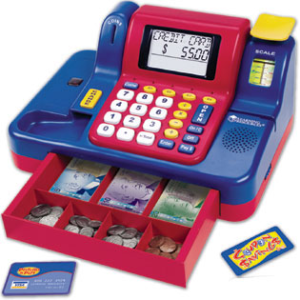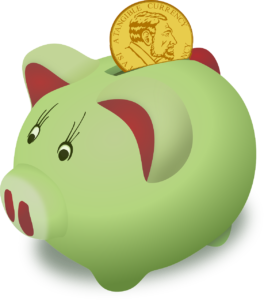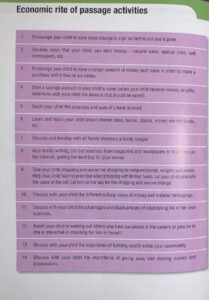
THE LIBERTY COACH
Coaching, Well being & Personal Development In Schools.
Economic Rite of Passage.
BLOG, Empowerment, Erb's Palsy Awareness Week, PARENTS / By Ruth Carter
Economic rite of passage features in session 7 at this point with only 5 sessions remaining in the program we get to cover most of the rite of passages in the very beginning stages, which I think helps to build communication skills with family members, as you have to ask them questions to get their thoughts and feelings on the subject of discussion.
I must say my communication skills were very poor back in the day, I have to admit that I didn’t see my children as little beings but that they were mine and they were to do as I say. Life certainly doesn’t always work that way and I was very dismissive of their feelings. The SFSC Parenting Program allowed me to connect on a deeper understanding with them and help our relationship to grow.

We learn about economics from our families, in school, the news mainly however some would say that there isn’t enough being taught in schools about the financial market. I recall doing business studies at High school and I also remember playing with fake money buying fake fruit and having the shopping till in primary school. In mathematics, we did addition, subtraction and multiplication with fake money. Even in the nursery schools today there is still the fake money. Is this teaching our children something? When was the last time you watched the little children play and demonstrate what they know about money?
If you happen to work in the Early Years Profession you will see first hand how the children play and how they learn to develop the exchange of toys for fake money or even I’ve seen a little mini market and those 3-year-olds seem to have some idea of buying and selling when they play. They may not understand the depth of what they are doing but certainly, they develop some form of knowledge possibly from what they’ve seen. I know I’ve seen it and it’s fun to hear them tell you how many £££ you’ve spent and what you own when they ring up the till. They might be making it up (the amount to pay) but they are learning that you have to have money to pay for items.

How do we teach our children to save? In the School Wellbeing program, I deliver there is a Workshop on Money & Self-Esteem and I ask the young people whether they are consumers or savers, I’ve even had a parent contact the school lead to finding out what am I teaching the students exactly because after that session her son came home sat down and worked out how much pocket money he gets, began predicting his future of getting a paper round, when he leaves school getting a Saturday job and what he desired for a future career and what the income is and showed his mother that by the time he is 25 he should have enough money for a deposit on his house, be able to pay his mortgage and bills and have a life. The mother was in shock because he is autistic. Whilst working with this particular group of challenging students I could see in this child particularly he had a love for maths. So I use that connection with all those positive feelings he has to plan his financial future with what he has now. During this session, students responded that ‘whatever money they are given they go to the shop on that same day and spend it all’, while others said ‘they save their money for bigger items that they want’. These students were in Year 8 at the time and had already begun developing spending and saving habits.

How do you discuss money at home? From before my children were born I was working in the Primary Care Trust and began saving from then, once I started a family I got saving bonds for my children and opened their savings account by the time I had my 2nd child the Government were running an investment scheme for the children of £500 but only got the first part but it was another bond investment. As my children grew up they had piggy banks, tins and jars for putting in the spare change that they could visually see increasing whilst putting birthday money into their savings account. As they got older they’ve been able to add a young person to account with a card. My daughter has a student account and has decided not to take the credit card or the overdraft that’s on offer and my son has a card for his account which he puts all his pocket money into so he can top up his phone and buy his gadgets.

What do you want to be when you get older is a question often asked children. Whilst sitting in my garden I overheard my neighbour ask her daughter that question, the child responded “nothing”. The mother exclaimed “nothing, so what you are just gonna sit there and cry”. I don’t think the situation was handled correctly but I do remember when I was asked that question as a child. I’ve gone on to ask that same question to many students. Some have an idea, some have a desire, some have a goal and some just don’t know yet what they want out of life. I wanted to be a nurse, a social worker, a coach, I’ve said a few time’s I should have been a lawyer. My daughter has wanted to be a fashion designer since watching The Devil Wears Prada’ but since the age of 2 she has been dressing her dolls up in items, she has created for them all be it socks. in her young mind, they were her designs.
My son didn’t know for a while what he wanted to be and I think he got his inspiration from a distant family friend who had his own construction business and talked about the different projects he had done over the years. Not long after that conversation my son picked Construction as his GCSE option and then said he would like to be an electrician. My son is very academic and has been predicted grades 6-9 in his subjects. As his parent, I’ve discussed going to university and his response is “I don’t want the debt”. So even at home, the discussion of finances and academics become more discussed as they progress through to further education. However, with school trips, dinner money, pocket money, spending money is all part of how we teach our children the economic rite of passage. Let’s take a look at what the SFSC Steps offer.

The Steps to Economic Rite of Passage from SFSC.
Step 1. Help your child learn to manage money.
Spend, save, invest
Step 2. Help your child obtain a job.
Job search, interview, maintenance
Step 3. Help your child set realistic goals while building a career.
Step 4. Help your child develop a business for economic self-sufficiency

The above steps are also attached to the Economic Rite of Passage activities. Choose 1 out of the list of 14 different activities and let me know how you get on.
You can leave your comments on the Parenting Live on Facebook and Youtube at 8 pm, leave a comment on my Instagram page or email me directly at ruth@thelibertycoach.com.
Thank you for reading my blog.
Click Here to View The Video That Accompanies This Blog Post Where Ruth Shares Her Experience & Favourite Techniques With You- To Help Improve Relations At Home By Discussion and Examples Of Methods and Strategies Developed Around Strengthening Families Strengthening Communities Core Concepts and Goals.
Ruth Carter The Liberty Coach.
Features
- Events
- Merchandise
- CAREERS
ONLINE TRAINING
- STUDENT LOGIN
- FREE Guides
Projects
- sfsc
- LIBERATE ME
- AMBASSADOR Training
© All rights reserved the liberty coach 2019